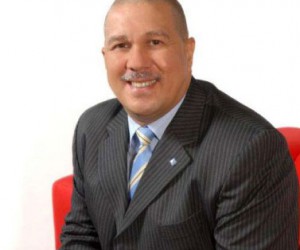The African Congress of Accountants 2015 (ACOA) saw more than 850 participants from across the African continent discuss and analyse the challenges impacting the industry today. One of the key sessions focused on the gender divide and the belief that Africa cannot rise as a continent without women playing a stronger role in the accountancy space. Some of the key takeaways included the value of women in the workplace, the importance of finding balance and the need to engage across gender to find solutions.
“The role of women in the corporate environment cannot be underestimated. Not only is it socially fair to ensure a greater gender balance in the business, but studies have shown that organisations with more women are more successful," says Shahied Daniels, Chief Executive at the South African Institute of Professional Accountants (SAIPA). “The opening of a discussion of this nature at an event as preeminent as ACOA is indicative of a trend towards a more inclusive industry.”
Examining the insight
Entitled ‘Bridging the Gender Divide’, the session was chaired by Asmâa Resmouki, President of the Pan African Federation of Accounting (PAFA), and examined how Africa requires action plans to address this gap and to change the mind-sets of both men and women. One of the key take-aways was that women need to become more confident in their abilities and capabilities within this sector.
The panel of speakers participating in the discussion included Olivia Kirtley (President of the International Federation of Accountants), Elizabeth Adegite (former President of the Association of Accountancy Bodies in West Africa and Institute of Chartered Accountants of Nigeria), Professor May Ifeoma Nwoye (of Nigeria) and Taher Drave (Partner and Principal at Mali Consulting Group).
A study undertaken by McKinsey Consulting found that women represented a steady 52% of graduates, but that only 11% of executives in listed companies were women. In addition, statistics from the SAIPA showed that there is a significant difference between trainees and members – 60% trainees against only 41% members.
“The questions that need to be asked are: why women leave the profession and how we can make it more attractive to them so they are inclined to stay,” says Daniels. “We must increase voice around this topic, to make it a louder conversation that can potentially ignite further investigation into these issues. This would potentially then find the answers that the industry is looking for.”
Glass ceilings
The nature of the business is one that demands long hours, tight deadlines, fast paces and high pressure. This is a standard facet of the gem that is accountancy, but not necessarily causes for women to be less inclined to remain within the profession.
“Stereotypes about role and women may be playing a part here, especially when many consider those stress factors to be a mitigating factor. Gender does not dictate capability in coping with late nights and high pressure, but managing a family life and a highly demanding professional life simultaneously could be,” says Daniels.
Ultimately, women and men both have to step forward and build the bridge over the gender gap. Women cannot be victims and should not be expected to fit into a ‘male model’, there needs to be cognisance of the value in developing a new model that adapts to the new workplace. PAFA was unable to persuade any men to take part in the panel – this in itself suggesting that there needs to be a stronger male participation in addressing the challenges.






